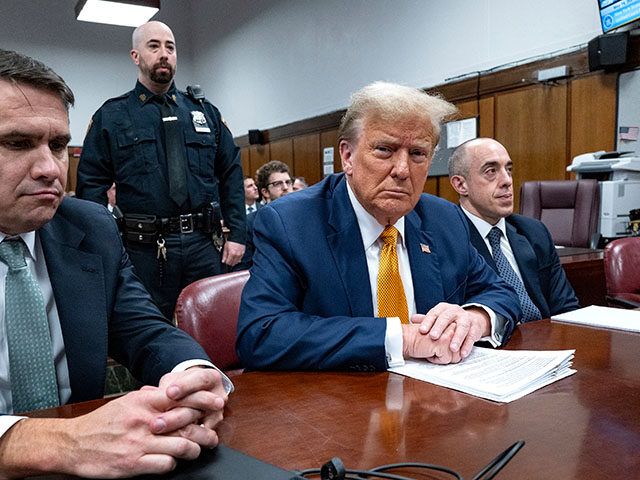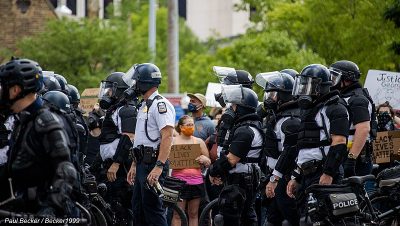Newsbud Exclusive- A Denuclearized North Korea? Not So Fast!

The supporters of President Trump are celebrating the prospect of a denuclearized North Korea, a feat former presidents were incapable of achieving. It was Donald Trump’s tough talk that brought Kim Jung-un to the negotiating table, they argue. The MAGA crowd insists he should receive the Nobel Peace Prize.
In politics, however, things are rarely as they appear. While the “historic summit” between North and South Korea makes headlines, significant hurdles remain behind the hoopla and fanfare at the truce village of Panmunjom.
The US will never agree to Kim’s demands. He declared North Korea will give up its nuclear weapons program and his stash of nukes if the United States commits to a formal end of the Korean War—unresolved for nearly 70 years—and a pledge not to attack the North. He also pledged to dismantle the nation’s Punggye-ri nuclear test site at Mount Mantap.
Kim vowed to close down the nuclear test site this month. On May 4 the media, citing US intelligence, said the North Koreans have started pulling cables from tunnels at the site.
But here’s what they glossed over. Five nuclear tests at the site have resulted in a collapse that puts China and other nations in the neighborhood at risk of radiation exposure.
“One group of researchers found that the most recent blast tore open a hole in the mountain, which then collapsed upon itself,” writes Stephen Chen for the South China Morning Post. “A second group concluded that the breakdown created a ‘chimney’ that could allow radioactive fallout from the blast zone below to rise into the air.”
In short, Kim can no longer us the Punggye-ri nuclear test site, so closing it down has become a convenient centerpiece of the ostensible peace campaign with South Korea and the United States.
Kim advocates the complete denuclearization of the Korean peninsula. The US is said to have removed its nuclear weapons from South Korea more than 25 years ago, but during the height of verbal hostilities between Trump and Kim the United States said it was considering stocking up on nukes at the Osan Air Base, less than fifty miles south of Seoul.
Basing nukes in South Korea, however, is irrelevant. During the media buzz over Trump’s proposed “bloody nose” threat against North Korea, it was reported that a nuclear strike would be conducted from the US military outpost on Guam, home to the Andersen Air Force Base and the Strategic Air Command. Guam is just over 2,000 miles from North Korea.
North Korea understands this distant outpost in the Western Pacific will serve as a launch platform for an attack. Last August, it threatened to conduct a test of its ballistic missiles near the island. “North Korea's military on Thursday repeated its threat to attack Guam, saying it is considering a plan to fire four intermediate-range ballistic missiles around the home to several U.S. strategic bombers,” the Yonhap News Agency reported on August 10, 2017.
“In a tit-for-tat of bellicose rhetoric, the Korean Central News Agency (KCNA) said its strategic force is ‘seriously examining’ the plan for an ‘enveloping strike’ at Guam with four Hwasong-12 missiles ‘in order to interdict the enemy forces on major military bases on Guam and to signal a crucial warning to the U.S.’”
In addition to denuclearization, it was reported the North Koreans want the US to remove its troops from the peninsula. In 2016, North Korea issued an official government statement calling on Washington to announce the withdrawal of American troops if it wanted to denuclearize the Korean Peninsula.
Earlier this week, the media reported Trump was considering this proposal. The United States has approximately 29,000 troops stationed in South Korea and has maintained troop levels there since the Korean War.
This positive development, however, was short lived. Soon after the media went with the story, Trump’s neocon national security adviser, John Bolton, declared the report to be nonsense. “The President has not asked the Pentagon to provide options for reducing American forces stationed in South Korea,” he told The New York Times.
On May 4, Trump told reporters prior to boarding Air Force One, “Troops are not on the table,” thus denying his earlier remarks that he asked the Pentagon to make plans for scaling back troop numbers in South Korea because it does not do enough to pay for their presence in the country.
Kim then shelved the proposal. In 2000, his late father, Kim Jong-il, told his South Korean counterpart, Kim Dae-jung, that following reunification it would be “desirable that U.S. troops stay as a peacekeeping force in Korea, instead of a hostile force against the North” and their presence would guarantee “stability in Northeast Asia.” (See Lim Dong-won, Peacemaker: Twenty Years Of Inter Korean Relations And The North Korean Nuclear Issue.)
Donald Trump doesn’t make foreign policy decisions without first taking instruction from his advisers. Top adviser John Bolton has long been a staunch advocate of taking a hardline against North Korea. During the Bush years, he opposed engaging in dialogue with Kim Jong-il. More recently, he has called for military strikes against North Korea. He considers the North Korean nuclear program a direct threat to the United States.
In March, he penned an article for The Wall Street Journal titled “The Legal Case for Striking North Korea First.” He portrayed North Korea as an immediate threat. “Given the gaps in U.S. intelligence about North Korea, we should not wait until the very last minute. That would risk striking after the North has deliverable nuclear weapons, a much more dangerous situation,” he wrote.
Despite a planned face-to-face meeting between President Trump and Kim Kung-un, the prospect of a peace deal, the denuclearization of the Korean peninsula, and reunification are at best little more than a pipe dream. It’s unlikely Kim believes the United States will live up to a promise to not attack North Korea if it abandons its nuclear weapons and missile development programs. The example of Libya hangs over the negotiations like a Sword of Damocles.
In December 2003, John Bolton took part in Bush administration negotiations with Libya’s leader, Muammar Gaddafi. He decided to renounce weapons of mass destruction after the Bush neocons invaded and destroyed Iraq. This followed Libya’s effort to normalize relations with the United States. In the late 1990s, the Libyans held secret talks with the Clinton administration, which demanded Libya take responsibility for the downing of Pan Am flight 103 over Lockerbie, Scotland in 1988.
Responsibility has never been conclusively decided for this act of terror despite the conviction of Abdelbaset al-Megrahi, the former head of security for Libyan Arab Airlines. Alternative theories hold the flight was downed as a result of an attack on a CIA drug smuggling arrangement known as Operation Corea or carried out by the Popular Front for the Liberation of Palestine-General Command. Another theory claims the terror act was conducted by Iran in revenge for the shooting down of an Iran Air Airbus by USS Vincennes.
In 1999, the United States agreed to the suspension of United Nations sanctions on Libya. During two years of talks, “American negotiators consistently told the Libyans that resolving the Lockerbie situation would lead to no more than elimination of United Nations sanctions. To get out from under the separate United States sanctions, Libya would have to address other concerns, particularly regarding its programs in weapons of mass destruction,” writes Flynt L. Leverett, a member of the Bush State Department’s policy planning staff at the time.
Libya met all these requirements. However, by the time the so-called Arab Spring rolled around in 2011, he was accused of secretly stockpiling mustard gas in violation of the Chemical Weapons Convention. The accusation, made by anti-Gaddafi fighters supported by the US, contradicted the findings of the Organization for the Prohibition of Chemical Weapons. It had supervised the destruction of Gaddafi’s chemical weapons arsenal prior to the orchestrated uprising in Libya, the destruction of the country, and brutal assassination of Gaddafi, who mistakenly trusted the United States.
Kim Jung-un is well aware of this betrayal and how the US double crosses former enemies and supposed friends alike. Koreans remember the apocalypse America imposed on their country, burning down virtually every town in the North and killing more than three million civilians. Air Force Gen. Curtis LeMay, head of the Strategic Air Command during the Korean War, admitted the US had killed 20 percent of the population, a figure comparable to the number killed in Poland by the Nazis during the Second World War.
It would be foolhardy to think this reality—and Trump and his UN ambassador Nikki Haley promising to unleash “fire and fury” on the North Korean people—does not play into the scene now unfolding. Unlike Gaddafi and Libya, North Korea has experienced the vicious wrath of the United States.
Kim Jung-un will not give up his nuclear weapons. He will not discontinue testing new and more effective missiles. His cult of personality version of authoritarian communism is incompatible with the oligarchic and scandal ridden crony capitalist culture of South Korea. The Korean War, known as the “Forgotten War” in America, lives on in the collective memory of North Korea.
Finally, John Bolton will make certain Trump pursues a hardline with Kim during face-to-face negotiations. In effect, the meeting will be little more than an extended photo op that will dominate the news cycle and then fade away.
Ultimately, John Bolton and the neocons will likely get their wish—military action directed against North Korea, a hermit nation that continues to suffer the nightmare hangover produced by its near total annihilation.
Kurt Nimmo, Newsbud Producer & Author, is a writer, editor, producer and researcher based in New Mexico. His research centers on international geopolitics and national politics in the United States. He is the former lead editor and writer for Infowars and now edits Another Day in The Empire. His most recent books are Donald Trump and the War on Islam and Another Day in the Empire: The Reign of George W. Bush and the Total War Neocons. Visit Kurt Nimmo’s website here



